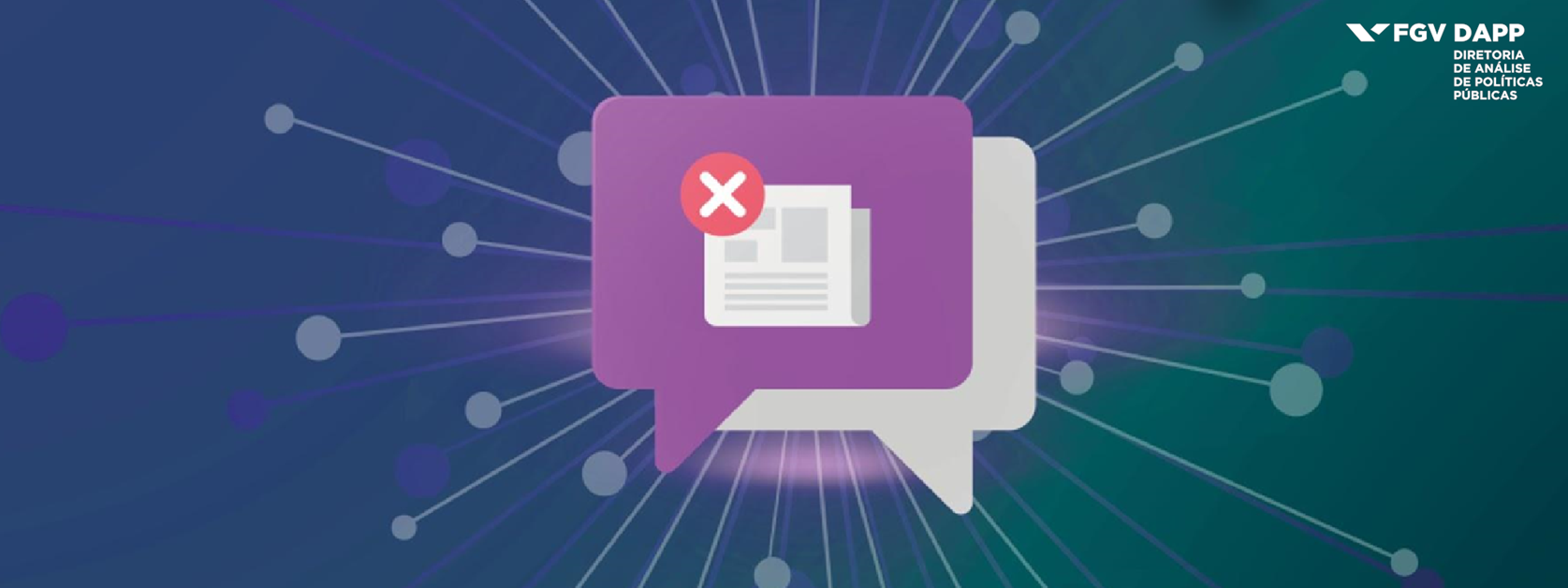#ElectionWatch: FGV DAPP Uncovers Foreign Twitter Influence in Brazil
Foreign accounts engaged in Brazilian political discourse on Twitter with disinformation
#ElectionWatch: FGV DAPP Uncovers Foreign Twitter Influence in Brazil

Foreign accounts engaged in Brazilian political discourse on Twitter with disinformation

In Brazil, a group of 232 profiles previously active in other countries has been spreading messages involving Jair Bolsonaro, Luiz Inácio Lula da Silva and fake news about pedophilia.
Among the most influential profiles were Russian media outlets such as RT and Sputnik, the accounts of political leaders from the United States and Italy, and an American alt-right youtuber. A second network of automated profiles from Venezuela, Argentina, Cuba and Ecuador published content supporting the Workers’ Party (PT) candidacy.
These two networks FGV DAPP identified indicate external attempts to influence the electoral debate in Brazil by actors of the right and left wings in other countries.
Russian and alt-right influence
FGV DAPP identified a group of 232 profiles for posting misinformation about pedophilia. The group made a total of 8,185 Twitter publications in Portuguese in the period between August 1 and September 26, 2018, related to Brazilian politics.
The influencer with the most interactions in its publications was the profile @RT_com, a Russian state television channel. The Spanish-language profiles @ActualidadRT and @SputnikInt, a Russian news channel, also appeared with a high number of mentions.
Of the 232 profiles, 99 released their location data, which could be used to view the distribution of their tweets in the world. Among the last 400 publications by these profiles, FGV DAPP identified tweets in more than 40 distinct languages. The languages used the most were English, Spanish and Italian. Portuguese was the sixth most used language; the tweets in Russian represented almost 3% of the base and were made by 54 profiles.
The messages in these last 400 publications included the presence of the Italian vice prime minister, political leaders of the United States and youtuber Paul Joseph Watson — who is associated with the US alt-right -, as well as Russian portals RT, RT en Español and Sputnik.
Some of these profiles have acted in other electoral debates, such as the in the US elections (in which FGV DAPP found 87 accounts), in France (55 accounts) and in Germany (98 accounts). In the debate about the exit of the United Kingdom from the European Union (Brexit), there were 66 accounts. FGV DAPP also found their participation in debates in Argentina, Paraguay, and Mexico.


Analysis of retweets of the 400 most recent publications made by users show an misinformation chain.

Influence coming from Latin America
In the period between August 14 and 24, 2018, FGV DAPP identified 117 automated profiles coming from Venezuela, which made 332 publications. FGV DAPP also found 11 profiles coming from Argentina with 18 publications; 6 Cuban accounts with 39 publications; and 4 profiles coming from Ecuador with 11 publications, publishing content in favor of the PT candidacy, adding up to 138 profiles.
The bots FGV DAPP identified complemented previous data collection, with a database from October to December 2017, in which FGV DAPP also identified mentions made by accounts from Argentina, Venezuela, and Ecuador in interactions with the official profiles of Brazilian political actors and actors associated with parties and political figures aligned with the left wing in these countries.
Relationships between the bots and the political actors

Out of the 732 automated profiles in the 2017 database, 102 accounts were tagged as having mentioned South American political actors.
The graph above shows the relationship between the bots and the political actors. Each dots in the graph represents a profile (except for “LulapeloBrasil|dilmabr”, which is the combination of Lula’s and Dilma’s profiles); named dots represent actors and unnamed dots represent bots. Each line connects a bot to a political actor, which means that the bot mentioned that actor one or more times. The bigger the dot is for each automated profile, the more political actors it mentioned in its publications.
The list of relationships between each group of bots and political actors can be found below. To help visualize the degree of proximity to political actors, FGV DAPP highlighted only the groups of automated profiles that mentioned more than one politician.
Relationship between each group of bots and the political actors

The presence of fake profiles and bots interfering in political discussions from outside Brazil, as shown in both studies, intoxicates social networks and the more general public debate with patterns that are foreign to the country’s most interesting public agenda. The content, in most cases, aims to encourage polarization and political radicalization and the deconstruction of the democratic environment through the action of external agents, a phenomenon that has been observed in other countries in recent years, especially the United States.
In addition, the integration of Twitter content with those of other networks, including Facebook and WhatsApp, reveals a campaign with coordinated and organized narrative disputes that explores the ecosystem of social networking platforms to promote misinformation.
The challenge moving forward will be more effective regulation of the digital environment in which the political debate takes place, which should be a commitment not only of the Brazilian Electoral Justice, but also of political parties and agents.
This article was originally published by Fundação Getúlio Vargas’s Diretoria de Análise de Políticas Públicas (FGV-DAPP). FGV-DAPP is a partner on #ElectionWatch Latin America, a joint initiative between the Atlantic Council’s @DFRLab and Adrienne Arsht Latin America Center.

